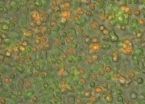(Press-News.org) A team of researchers at the IRCM, led by André Veillette, MD, explains how our immune system kills abnormal blood cells. Their discovery, recently published in the Journal of Experimental Medicine, could eventually lead to new treatment avenues for leukemia, lymphoma and certain types of infectious viral diseases.
"Our team is studying how natural killer cells can eliminate abnormal hematopoietic (blood) cells," explains Dr. Veillette, Director of the Molecular Oncology research unit at the IRCM. "NK (natural killer) cells are crucial to the immune system and play a critical role in protecting us against viruses and cancer cells."
In a previous study, the IRCM researchers found the SAP molecule to be an essential component of NK cells' ability to kill abnormal blood cells, which can be found in blood cancers such as leukemia and lymphoma, as well as in certain infectious viral diseases like infectious mononucleosis.
"In addition to SAP, a protein called EAT-2 can also be found in NK cells," adds Dr. Veillette. "We knew that EAT-2 cooperates with SAP, and, with this research project, we wanted to better understand why they are both required for the proper functioning of NK cells."
Using a variety of genetic, biochemical and imaging approaches, the researchers successfully defined the molecular and cellular mechanisms by which EAT-2 controls the activation of NK cells.
"We identified the molecular chain of events that occur, and showed that EAT-2 and SAP perform different functions using distinct mechanisms," says Dr. Veillette. "These findings explain the cooperative and essential function of these two molecules in activating NK cells, thereby allowing them to kill abnormal blood cells."
"EAT-2 and SAP are molecules found inside NK cells, and they are linked to receptors of the SLAM family on the cell surface," concludes Dr. Veillette. "Because they can make better drug targets, our future work will focus on these receptors, which could eventually lead to identifying new potential treatment avenues for blood cancers such as leukemia and lymphoma."
According to the Leukemia & Lymphoma Society of Canada, one person in Canada is diagnosed with a blood cancer approximately every 28 minutes. In 2013, leukemia, lymphoma, myeloma and myelodysplastic syndromes caused an estimated 6,850 deaths in the country. Leukemia and lymphoma also account for almost half of all childhood cancers (age 0-14 years).
INFORMATION:
About the study
Dr. Veillette's research was funded by the Canadian Institutes of Health Research, the Canadian Cancer Society Research Institute and the Canada Research Chairs program. The project was conducted at the IRCM by Luis-Alberto Pérez-Quintero (first author of the study), Romain Roncagalli, Huaijian Guo, Dominique Davidson and André Veillette, in collaboration with Sylvain Latour from the Institut des maladies génétiques Imagine in Paris.
For more information, please refer to the article summary published online by the Journal of Experimental Medicine:
http://jem.rupress.org/content/early/2014/03/25/jem.20132038.abstract.
About André Veillette
André Veillette obtained his medical degree from the Université Laval. He is Full IRCM Research Professor and Director of the Molecular Oncology research unit. Dr. Veillette is full research professor in the Department of Medicine (accreditation in molecular biology) at the Université de Montréal. He is also adjunct professor in the Department of Medicine (Division of Experimental Medicine) at McGill University. Dr. Veillette holds the Canada Research Chair in Immune System Signalling. For more information, visit http://www.ircm.qc.ca/veillette.
About the IRCM
Founded in 1967, the Institut de recherches cliniques de Montréal is currently comprised of 35 research units in various fields, namely immunity and viral infections, cardiovascular and metabolic diseases, cancer and genetic diseases, neurobiology and development, systems biology and medicinal chemistry. It also houses four specialized research clinics (cholesterol, cystic fibrosis, diabetes and obesity, hypertension), eight core facilities and three research platforms with state-of-the-art equipment. The IRCM employs 425 people and is an independent institution affiliated with the Université de Montréal. The IRCM Clinic is associated to the Centre hospitalier de l'Université de Montréal (CHUM). The IRCM also maintains a long-standing association with McGill University. The IRCM is funded by the Quebec ministry of Higher Education, Research, Science and Technology.
Montreal researchers explain how our immune system kills abnormal blood cells
The discovery could lead to new treatment avenues for leukemia and lymphoma
2014-04-08
ELSE PRESS RELEASES FROM THIS DATE:
How coughs and sneezes float farther than you think
2014-04-08
The next time you feel a sneeze coming on, raise your elbow to cover up that multiphase turbulent buoyant cloud you're about to expel.
That's right: A novel study by MIT researchers shows that coughs and sneezes have associated gas clouds that keep their potentially infectious droplets aloft over much greater distances than previously realized.
"When you cough or sneeze, you see the droplets, or feel them if someone sneezes on you," says John Bush, a professor of applied mathematics at MIT, and co-author of a new paper on the subject. "But you don't see the cloud, ...
Gothenburg scientist in Nature: Climate models underestimate costs to future generations
2014-04-08
The seven scientists behind the article, due to be published 10 April, conclude that the reports by the UN climate panel serve an important function in setting the agenda for climate research. Yet the most important role of the Intergovernmental Panel on Climate Change (IPCC) is to inform the global political discussion on how the harm caused by climate change should be handled.
Thomas Sterner, expert on policy instruments to reduce greenhouse gas emissions, is a Coordinating Lead Author of one key chapter on policy instruments in the Working Group III of the Fifth Assessment ...
Are women in Iran who use Facebook less likely to wear a veil?
2014-04-08
New Rochelle, NY, April 8, 2014—Use of social media such as Facebook can influence attitudes and behaviors among people of all countries and cultures. Among women in Iran, the duration and amount of daily Facebook activity is associated with their desire to wear a traditional head-covering and their willingness to display pictures of themselves without a veil, according to an article in Cyberpsychology, Behavior, and Social Networking, a peer-reviewed journal from Mary Ann Liebert, Inc., publishers. The article is available free on the Cyberpsychology, Behavior, and Social ...
New research may provide effective nonsurgical treatment for knee osteoarthritis
2014-04-08
New Rochelle, NY, April 8, 2014—A new nonsurgical approach to treating chronic pain and stiffness associated with knee osteoarthritis has demonstrated significant, lasting improvement in knee pain, function, and stiffness. This safe, two-solution treatment delivered in a series of injections into and around the knee joint is called prolotherapy, and is described in The Journal of Alternative and Complementary Medicine, a peer-reviewed journal from Mary Ann Liebert, Inc., publishers. The article is available free on The Journal of Alternative and Complementary Medicine website.
David ...
Breast cancer cell subpopulation cooperation can spur tumor growth
2014-04-08
Subpopulations of breast cancer cells sometimes cooperate to aid tumor growth, according to Penn State College of Medicine researchers, who believe that understanding the relationship between cancer subpopulations could lead to new targets for cancer treatment.
Cancers contain genetically different subpopulations of cells, called subclones. Researchers have long known that these mutant subclones aggressively compete with one another to become the dominant tumor cell population. However, in some cases it seems that no single subclone can achieve dominance on its own. ...
Tracking sugar movement in plants
2014-04-08
A new study published in the Proceedings of the National Academy of Sciences by scientists at the University of Queensland, Australia, overturns a long-held theory in plant science [see:http://www.bnl.gov/newsroom/news.php?a=11631]. Researchers at the U.S. Department of Energy's (DOE) Brookhaven National Laboratory who are co-authors on this paper conducted critical radiotracer studies that support the new theory that plant sugars play a dominant role in regulating branching at plant stems. While branching has relevance in agriculture, it is also very important in bioenergy ...
Dartmouth researchers identify potential therapeutic target for deadly brain cancer
2014-04-08
(Lebanon, NH, 4/8/14) Researchers from the Geisel School of Medicine at Dartmouth will present a scientific poster on Tuesday, April 8, 2014 at the American Association of Cancer Researchers conference in San Diego, CA. The research identifies a potential characteristic for predicting outcome in a deadly form of brain cancer known as glioblastoma multiforme.
Existing therapies based on genetic information have failed to effectively treat glioblastomas. Therefore, researchers are aggressively looking to find new molecular targets for this aggressive brain tumor.
Dartmouth ...
Novel plant biotechnology approach for sustainable production of pharmaceutical compounds
2014-04-08
European scientists have made ground-breaking discoveries for improving the efficiency of the production of pharmaceuticals through plant biotechnology. Biotechnological production offers a cost-effective and environmentally friendly alternative to the chemical synthesis of rare and complex pharmaceutical compounds currently isolated from plants. The results have been achieved in the European SmartCell project coordinated by VTT Technical Research Centre of Finland.
Several expensive anticancer alkaloid blockbusters used in chemotherapy, such as terpenoid indole alkaloids ...
New breast cancer results illustrate promise and potential of I-SPY 2 trial
2014-04-08
In an innovative clinical trial led by UC San Francisco, the experimental drug neratinib along with standard chemotherapy was found to be a beneficial treatment for some women with newly diagnosed, high-risk breast cancer.
Additionally, researchers learned that an algorithm used in the adaptive, randomized trial known as I-SPY 2 was highly effective at predicting the success of the treatment regimen in the patients who have HER2-positive/HR-negative disease.
The finding marks the second drug "graduation" within the I-SPY 2 trial model, which is designed to accelerate ...
Geography research could improve the effectiveness of hospital patient transport services
2014-04-08
University of Cincinnati research is offering hospitals and trauma centers a unique, accurate and scientific approach to making decisions about transporting critical-care patients by air or by ambulance. A presentation this week at the annual meeting of the Association of American Geographers (AAG) in Tampa, Fla., highlights the research of Michael Widener, a UC assistant professor of geography, along with Zac Ginsberg, MD, Maryland Shock Trauma Center; Samuel Galvagno Jr., assistant professor, Divisions of Trauma Anesthesiology and Adult Critical Care Medicine, Maryland ...
LAST 30 PRESS RELEASES:
Novel camel antimicrobial peptides show promise against drug-resistant bacteria
Scientists discover why we know when to stop scratching an itch
A hidden reason inner ear cells die – and what it means for preventing hearing loss
Researchers discover how tuberculosis bacteria use a “stealth” mechanism to evade the immune system
New microscopy technique lets scientists see cells in unprecedented detail and color
Sometimes less is more: Scientists rethink how to pack medicine into tiny delivery capsules
Scientists build low-cost microscope to study living cells in zero gravity
The Biophysical Journal names Denis V. Titov the 2025 Paper of the Year-Early Career Investigator awardee
Scientists show how your body senses cold—and why menthol feels cool
Scientists deliver new molecule for getting DNA into cells
Study reveals insights about brain regions linked to OCD, informing potential treatments
Does ocean saltiness influence El Niño?
2026 Young Investigators: ONR celebrates new talent tackling warfighter challenges
Genetics help explain who gets the ‘telltale tingle’ from music, art and literature
Many Americans misunderstand medical aid in dying laws
Researchers publish landmark infectious disease study in ‘Science’
New NSF award supports innovative role-playing game approach to strengthening research security in academia
Kumar named to ACMA Emerging Leaders Program for 2026
AI language models could transform aquatic environmental risk assessment
New isotope tools reveal hidden pathways reshaping the global nitrogen cycle
Study reveals how antibiotic structure controls removal from water using biochar
Why chronic pain lasts longer in women: Immune cells offer clues
Toxic exposure creates epigenetic disease risk over 20 generations
More time spent on social media linked to steroid use intentions among boys and men
New study suggests a “kick it while it’s down” approach to cancer treatment could improve cure rates
Milken Institute, Ann Theodore Foundation launch new grant to support clinical trial for potential sarcoidosis treatment
New strategies boost effectiveness of CAR-NK therapy against cancer
Study: Adolescent cannabis use linked to doubling risk of psychotic and bipolar disorders
Invisible harms: drug-related deaths spike after hurricanes and tropical storms
Adolescent cannabis use and risk of psychotic, bipolar, depressive, and anxiety disorders
[Press-News.org] Montreal researchers explain how our immune system kills abnormal blood cellsThe discovery could lead to new treatment avenues for leukemia and lymphoma




